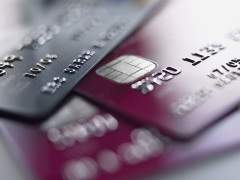There’s a lot of conflicting advice on using credit cards wisely. Some experts warn that cutting up cards and using cash for every purchase is the only sure path to financial well-being, while others suggest healthy credit card use is necessary for building a good credit score.
Here are 13 must-do tips for using credit cards wisely — whether you’re building credit from the ground up or repairing damage done to your score:
- Limit the number of cards: If you have a mailbox and a home address, you probably receive an array of credit card offers promising dazzling perks and rewards. Yet every time you apply for a new card, the card company pulls your credit score. Too many pulls in a short amount of time will damage your credit. Too many cards can also increase your risk of falling into deep debt. Most people need no more than one or two credit cards.
- Opt-out of prescreening: To minimize the temptation to open new cards, opt out of pre-screened offers at optoutprescreen.com
- Avoid unnecessary fees: Credit card companies charge fees for late payments – even when it’s just a day or two – and exceeding card limits – even if it’s only a few dollars. Worse, these issues may trigger a higher interest rate and ding your credit score.
- Pick your payment due-date: Setting a payment date a few days after payday helps ensure you have the money to make credit card payments.
- Pay off balances every month: Don’t fall into the trap of paying just the minimum payment each month. It can take years to pay off your debt in this manner. Try to pay off your entire balance each month, and don’t waste money on interest.
- Never get a cash advance: The prospect of quick cash is tempting, but cash advances almost always come with hefty fees and high interest rates.
- Avoid frivolous spending: This one seems obvious, but it’s easy to plunk down a credit card to buy something you can’t really afford. Stick to your budget, and save up for big purchases over time.
- Don’t close old accounts: While this may seem counterintuitive, closing a credit card can actually lower your credit score because it reduces your credit-to-debt ratio, a major factor credit bureaus use to determine scores. Cut up the card if it will help you resist the urge to use it, but keep the account open.
- …Unless there’s a steep annual fee: Some credit card companies charge an annual fee, usually to the tune of $50 or more. In this case, the benefits of closing the account and pocketing that fee may outweigh the potential effect on credit scores, especially if you don’t plan to apply for any loans or lines of credit in the near future.
- Review statements each month: It’s important to check your account statement each month for accuracy. It’s also smart to make sure you understand the fine print.
- Use the perks: Credit cards offer many important perks – beyond travel rewards and cash back – but many people don’t know about them. Your card member agreement spells out all of the benefits, from buyer protection and car rental discounts to extended warranties and free airport lounge access.
- Use cards online: With identity theft on the rise, it’s often best to use credit when making purchases online. If your number is stolen, you won’t be out any money while your credit card company investigates. With debit cards, your money may be inaccessible until the situation is resolved.
- Seek debt help early: If you’re struggling with high debt, don’t delay contacting a credit counselor and establishing a plan for paying down balances and improving your credit.





